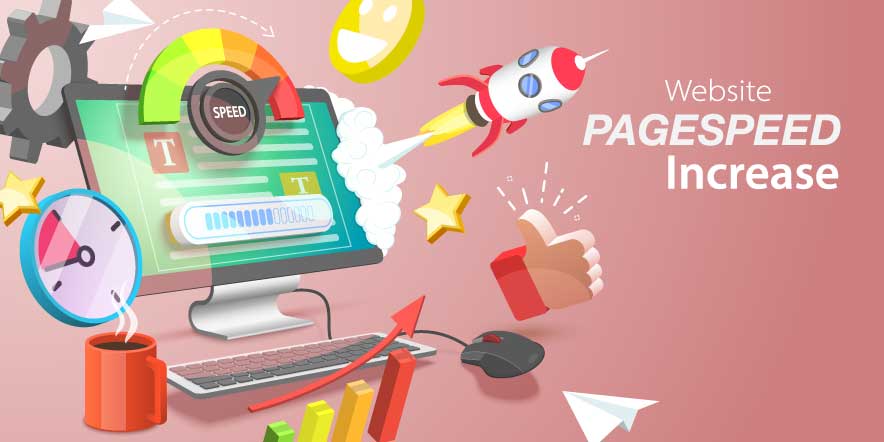Take Google’s page speed test here and see where you stand.
While it’s not one hundred percent clear just how heavily load times weigh into Google’s algorithm, it’s one hundred percent certain that slow loading times can hurt your ranking. Let’s not forget though that the same goes for mobile as well, since mobile devices are now driving an estimated 56% of global traffic. Not to worry though, there are steps you can take to increase your page load speed.
Optimize Your Code
Cluttered and inefficient code can be a major contributor to a web page’s slow speed. Streamline and optimize your code by removing any unnecessary characters, spaces, or commas to reduce file size. Use various compressors on HTML, JavaScript, and CSS to make them more efficient. The industry terms here are none other than “Minification & Concatenation or joining together.” The actual process for minification is the removal of all line breaks, whitespace, and comments. Concatenation is the process of taking similar files and joining them together as one. Too many JavaScript files will equate to a low page speed. By combining some of them you’ll see your score go up dramatically. In most cases, this process requires years of experience. So when it comes to speed, optimize your code to make your web page a lean, mean, internet machine. Or simply, reach out to us today.
Downsize Your images
High-definition images consume tons of bandwidth and really slow down your page loading time. Make sure the images on your web page are no larger than they need to be. Just never upload images directly from your camera. Every single file must be processed down to 72DPI. Use JPG or PNG formatting for logos. If you go down that route, you effectively solve two distinct problems. First, it allows transparency which is a must if you want your website to look its best. Transparency can give the illusion that it’s floating or see-through, while it’s not mixing up with other graphics. Years ago we used transparent GIFs but the low quality (only 256 colors) was not very attractive. A PNG file is full color, and capable of more than 6 million colors. (Same as a JPG) but at a cost. A PNG is very large in megabytes. Never use a PNG unless you need the transparency. Compress large HD images in PNG format to keep the quality of the image and downsize their weight.
Add a CDN
A (CDN) or Content Delivery Network makes a copy of your site files and stores them in servers located around the world. It can add a 20% – 30% delivery increase in speed to your viewers. Many CDN services also provide a layer of security that will keep out unwanted hackers. They provide daily reports on logins and can even auto-backup your site. If something goes wrong you could be back up and running in less than a few hours. It’s one of the easiest ways to speed up your site for a low cost starting around $25 a month.
Secure Your Site
A secure site is crucial to the success of your page. Google algorithm favors Transport Layer Security (TLS) in its ranking, the catch being that this web security protocol can add more complexity to your site and affect load speed. You can probably relate more to SSL or HTTPS since these are the terms that relate to actual use. You can seek out the help of a web security professional to ensure your site is secure without sacrificing load speed.
- Using proven security services implemented by our team helps safeguard your web assets against intruders and also gives you a desirable speed boost. In the Age of Limited Attention Spans, speed is the name of the game.
Check your theme
Choose a theme that is optimized for page speed. Many themes are beautiful but that beauty can come at a cost if not designed with speed in mind. Many WordPress themes include so many extra features that it critically affects page speed. If you are considering multiple themes, minimal designs are typically faster.
Get a Better Host
Among other things, server-side compression is an extremely important process for website speed. The actual test title on Google page speed is “Reduce server response time.” Fast host and implementing a quality CDN solves this. There’s no doubt that cheap web hosting can help save you money, but what you save in the beginning may end up costing you in the long run. When it comes to web hosting you get what you pay for. Be sure that you pick the fastest host you can comfortably afford. You’ll be surprised how much a quality web host will improve your page speed.
In the battle for search ranking, no detail can go unnoticed.
There are many steps you can take to ensure your website loads at optimal speeds and gains favorable ranking points from Google. Some solutions may be a bit more technical and others simple, but they’re all worth the time and effort to avoid being penalized by Google’s algorithm.
Frequently Asked Questions
Why does page speed matter for SEO rankings?
How does a slow page speed affect engagement and conversions?
What are Core Web Vitals and why are they important?
What page speed strategies boost both SEO and UX?
How can I test my website’s page speed performance?
Why do hosting and server speed matter for page load?
How often should I test and optimize page speed?
Can optimizing page speed improve mobile rankings?
Yes mobile first indexing means mobile page speed is critical. Fast mobile experiences lead to better visibility and engagement, especially since most users access content via mobile.


